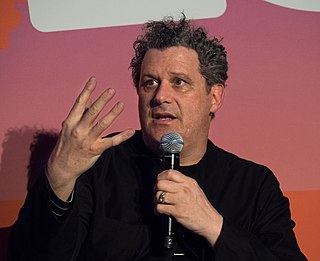A Quote by Umberto Eco
I discovered ... that a novel has nothing to do with words in the first instance. Writing a novel is a cosmological matter, like the story told by Genesis (we all have to choose our role models, as Woody Allen puts it).
Related Quotes
The way Woody Allen directs, there isn't a lot of direction. He kind of might give a few gentle suggestions, but he really says right from the first day, "Just make it sound natural, and if you don't like something, put it in your own words." And [Woody Allen] gives you a lot of freedom and just very polite.
Anthropological fieldwork is so much like writing a novel. Granted, you don't have the physical disruption and disorientation, but writing a novel is like entering a new culture. You don't know what the hell is going on. And every day you feel like you have nothing, you're going nowhere. Or you feel that first it's going somewhere, but then you get into that horrible middle part.
If I can give a young author any advice, whatsoever, never let anyone announce the film sale of your first novel. Film rights are sold to almost every novel, but it shouldn't be the lead story in your first engagement with the press. Then you end up getting reviews like "a novel made for the screen" and things like that.
I was a lot dumber when I was writing the novel. I felt like worse of a writer because I wrote many of the short stories in one sitting or over maybe three days, and they didn't change that much. There weren't many, many drafts. That made me feel semi-brilliant and part of a magical process. Writing the novel wasn't like that. I would come home every day from my office and say, "Well, I still really like the story, I just wish it was better written." At that point, I didn't realize I was writing a first draft. And the first draft was the hardest part.
One easy mistake to make with the first novel is to expand the short story. Some things are better as a story; you cannot dilute things into a novel. I think the first hundred pages of a novel are very important. That's where you set things up: the world, the characters. Once you've set that up, it'll be much easier.
A short story is a sprint, a novel is a marathon. Sprinters have seconds to get from here to there and then they are finished. Marathoners have to carefully pace themselves so that they don't run out of energy (or in the case of the novelist-- ideas) because they have so far to run. To mix the metaphor, writing a short story is like having a short intense affair, whereas writing a novel is like a long rich marriage.
I don't mind that if I ever star in movies, they'll likely be mine. That's okay, because my great role models - Woody Allen, even Tyler Perry, who is actually one of my role models, even if that seems kind of strange - they do that themselves. And it's great. They build empires, and they're known as having their own voice. I think it's 20 times more fun to act on a set where I feel the freedom to change the dialogue.







































